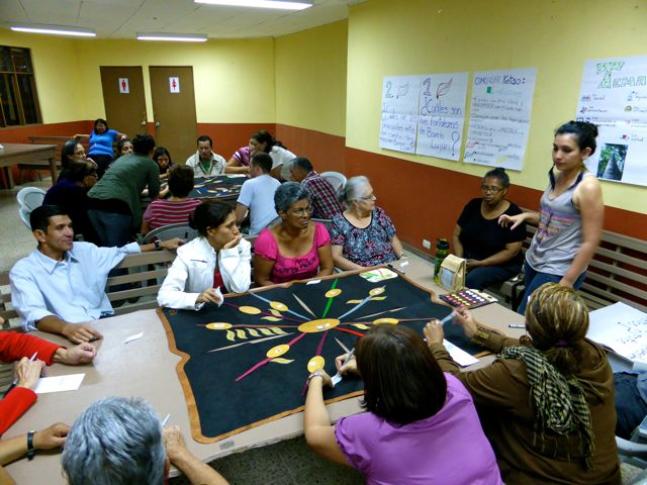
 ICTs can enhance the capacity of communities to organise and respond to extreme weather events provoked by climate change… Photo: Sulá BatsúCooperativa Sulá Batsú is piloting the Resilience Assessment Benchmarking and Impact Tool (RABIT) developed by Angélica Ospina and Richard Heeks of the Centre for Development Informatics at the University of Manchester. RABIT is aimed at enhancing the resilience of communities to the effects of climate change through the use of ICTs, such as the internet, social networking platforms and mobile applications.
ICTs can enhance the capacity of communities to organise and respond to extreme weather events provoked by climate change… Photo: Sulá BatsúCooperativa Sulá Batsú is piloting the Resilience Assessment Benchmarking and Impact Tool (RABIT) developed by Angélica Ospina and Richard Heeks of the Centre for Development Informatics at the University of Manchester. RABIT is aimed at enhancing the resilience of communities to the effects of climate change through the use of ICTs, such as the internet, social networking platforms and mobile applications.
Sulá Batsú and the University of Manchester began piloting RABIT in 2013 in San José, Costa Rica to test its implementation in urban areas that are vulnerable to climate change impacts. They have been working with local communities to assess their knowledge of climate change and current ICT usage, to design proposals for better use of technology to strengthen community resilience, and to improve the tool for future application.